نرگس باقری مطلق*۱، عباس قاسمی حامد۲
۱- دانشکده حقوق، دانشگاه شهید بهشتی، تهران، ایران. (نویسنده مسئول)
۲- دانشکده حقوق، دانشگاه شهید بهشتی، تهران، ایران
دوره ۱۳، شماره ۵۱ – ( زمستان ۱۳۹۸ )
جلد ۱۳ شماره ۵۱ صفحات ۲۰۵-۱۷۷
مجله حقوق پزشکی
بیماران، مصرف کنندگان اصلی خدمات نظام سلامت و از آسیب پذیرترین اقشار جامعه هستند. ایشان به لحاظ فشارهای جسمی و روحی ناشی از بیماری و همچنین، به دلیل بار مالی ناشی از خدمات درمانی در وضعیت خاصی قرار دارند. در مقابل، پیشرفت، تنوع و تخصصی شدن خدمات درمانی، موجب شده است بیماران در برابر گروهی به نام «ارائه دهندگان خدمات نظام سلامت» قرار گیرند، لذا حمایت از بیماران که از طرفی ناگزیر از دریافت خدمات نظام سلامت هستند و از طرف دیگر، با حقوق خود آشنایی کافی ندارند، ضروری به نظر می رسد. تخلفات حوزه پزشکی، بسته به نوع آن ها می توانند در صلاحیت محاکم عمومی یا انقلاب باشند. با این حال، به دلیل تخصصی بودن تخلفات صورت گرفته در حوزه سلامت و به جهت تسریع در رسیدگی، مراجعی غیر از مراجع قضایی نیز برای رسیدگی به تخلفات حرفه ای پزشکی ایجاد شده است. این مراجع صرفا در حدود مسائلی که قانون مشخص کرده است، صلاحیت دارند و برخلاف محاکم دادگستری، تحت نظارت قوه قضاییه نیستند. این مراجع یا تحت نظارت قوه مجریه یا فراقوه ای یا به صورت مراجع انتظامی هستند که برای رسیدگی به تخلفات متخصصان و با حضور نمایندگانی از قوه قضاییه و سازمان های مربوطه تشکیل می شوند. در این مقاله، مراجع غیر قضایی صالح به رسیدگی به دعاوی علیه ارائه دهندگان خدمات نظام سلامت که شامل سازمان تعزیرات حکومتی، شورای رقابت و مراجع مقرر در قانون سازمان نظام پزشکی (که جمعا شامل ۵ مرجع: ۱ دادسرای انتظامی شهرستان؛ ۲ هیات بدوی انتظامی شهرستان؛ ۳ هیات تجدید نظر انتظامی استان؛ ۴ هیات عالی انتظامی استان؛ ۵ دادگاه تجدید نظر مرکز استان است) و کارکرد آن ها در حوزه سلامت مورد بررسی قرار گرفته و در خاتمه نیز پیشنهادات مقتضی ارائه شده است.
Baqeri Motlaq N, Qasemi Hamed A. Quasi-Judicial Authorities Investigating Violations in the Provision of Health Care Services.
MLJ 2020; 13 (51)
Patients are the main consumers of health care services and among the most vulnerable social classes. They are in a special situation because of the physical and emotional stresses caused by the illness as well as the financial burden of medical services. In contrast, the advancement, diversification and specialization of health care services have led patients to face a group called “health care service providers”; Therefore, it seems necessary to support patients who inevitably receive health care services on one hand and are not familiar enough with their rights on the other hand. Violations in the medical field, depending on their type, may be in the jurisdiction of the public or revolutionary courts. However, due to the specialized nature of violations in health care field and for speeding up proceedings, some authorities other than judicial authorities have also been established to deal with medical professional violations. These authorities are only competent in matters specified by law and, unlike the courts of justice, are not under the supervision of the judiciary. These authorities are either under the supervision of the executive or extrajudicial power or in the form of law enforcement agencies dealing with the specialists’ violations, with the presence of representatives from the judiciary and related organizations. In this article, competent non-judicial authorities dealing with lawsuits against health care service providers including the Tazirat Organization, the Competition Council, and the authorities designated by the medical system law (consisting of five references in total: 1. County Public Prosecutor’s Office; 2. County Disciplinary Trial Court; 3. Provincial Disciplinary Board of Appeal; 4. Provincial Supreme Court; 5. Provincial Court of Appeal) and their functioning in the field of health are investigated and finally appropriate suggestions are made.



